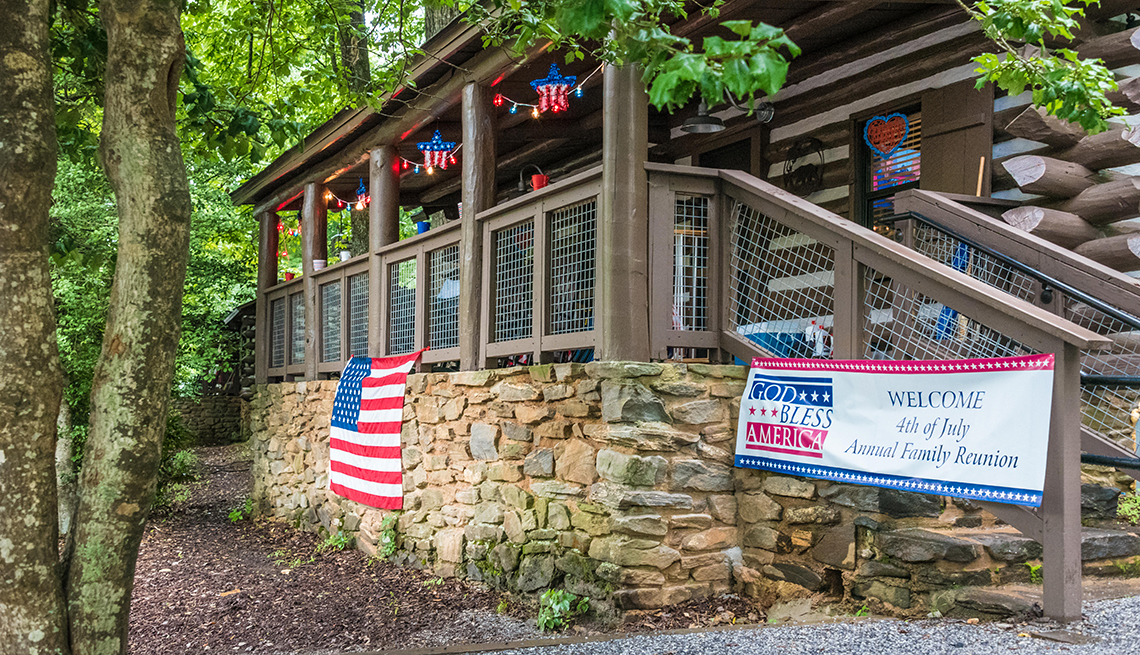
Tips to help choose your family reunion location
- Select a language for the TTS:
- UK English Female
- UK English Male
- US English Female
- US English Male
- Australian Female
- Australian Male
- Language selected: (auto detect) - EN
Play all audios:

Half of all family reunions are held in a new place each year, says Edith Wagner, editor of _Reunions Magazine_. She and other experts see increased interest from families, if they can
afford it, in holding reunions on dude ranches and cruise ships. They offer something for everyone, easy planning and often all-inclusive pricing. “While there are numerous opportunities for
together time, participants have a whole ship to enjoy,” says Meg Ryan, manager of ecruisenet.com. Ships often employ onboard group coordinators and offer activities like day camps for kids
and classes for adults. A three-day cruise can cost less than $200 per person and group bookings (at least eight cabins usually) or shorter 3- or 4-night sailings can garner even better
rates, she says. Some other family-friendly options: Mohonk Mountain House north of New York City, the Greenbrier in West Virginia, Destination Kohler in Wisconsin, Kiawah Island Golf Resort
in South Carolina and the Broadmoor in Colorado. More affordable stays can be arranged at low-cost vacation meccas such as Myrtle Beach (South Carolina), Branson (Missouri), or Pigeon Forge
(Tennessee). Planners might also consider all-inclusive resorts in the Caribbean and Mexico. FIND AFFORDABLE ACCOMMODATIONS Start by contacting local tourism bureaus, which may have a
meeting planner or family reunion specialist who can help. “We get them a discounted rate [typically 20 to 25 percent off the standard rate] for their group blocks, sometimes beyond what
they can negotiate themselves,” says Lisa Anders, executive director of Explore Gwinnett Tourism & Film in Gwinnett County, Georgia, just northeast of Atlanta. “We’ll put together a
proposal package for them — rates as well as other offers — within 72 hours without them having to lift a finger.” Families can negotiate group rates on hotel rooms as well as deals on
meals, meeting space, parking or other amenities. Choosing lodgings on the outskirts of a city typically costs 15 percent to 20 percent less than in town, says Waller, who specializes in
group travel. For any size reunion, experts advise blocking off hotel rooms. Hotels have different policies, but typically the bigger the reunion, the bigger the price discount on rooms or
other perks like parking and meeting space. A courtesy block holds a number of rooms at a certain price for your group until typically 30 days before check-in, when the remaining unbooked
rooms return to the hotel’s inventory. You have no financial obligation to use all the rooms, but there are no guarantees. A contract block is similar, but an agreed-upon number of rooms is
guaranteed. You must fill or pay for typically 70 percent to 90 percent of those rooms. Rental houses are increasingly popular options because they fit large groups — plus you get a kitchen,
common lounge areas and perhaps a pool. By combining funds, reunion planners can snag a dream house that costs less per person than separate hotel rooms.
